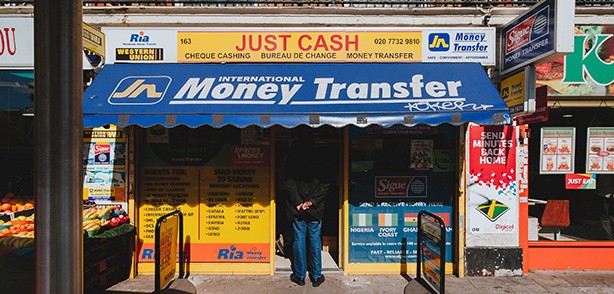Can You Cash Customer Checks without a Business Banking Account?

The "gig economy" has given rise to all kinds of side hustles that could grow into something much larger — a full-fledged business. Still, your business finances might be tied to your personal checking account. In this PayPal and Venmo-ized world, you might not feel the need for business bank account — though we and other small business resources can think of many good reasons to have one. And then it happens:
Someone writes you... a check. Now what? Things gets especially tricky if they write that check to whatever you call your business — good luck convincing the bank that "Leprechaun Lawn Services" and you are one in the same.
In such a case, you could ask the customer to write it to you directly (which smacks of "I'm avoiding taxes", even if you report that income and pay the IRS) or have them send you a (costly) wire transfer. Neither of these options is a business-building tactic.
Your options:
1. Cash the check's at the customer's bank.
You'll still need to prove that you're the business to whom the check is written, and you may be charged a processing fee. But one upshot to this approach is that you'll find out on the spot if the check was going to bounce.
2. Use a check-cashing facility.
These small storefront cater to individuals who, for one reason or another, don't use a bank. These businesses may have more lenient identification standards, but they can also charge higher fees than a bank — after all, this is how they make all of their money. Fees can range from 1 percent to as much as 12 percent of the check amount, plus other fees. For this reason alone, check-cashing facilities are not a great long-term option.
3. Visit a major retailer.
Walmart, supermarkets and drugstores often offer check cashing services with a valid government ID. At Walmart Money Centers or service desks in 41 states, businesses can use the Money Center or Service Desk. Like the check-cashing stores, a retailer will charge a fee for the service based on the amount of the check and may limits check amounts. Save time by calling before you go to make sure that the store offers business check-cashing services.
4. Use a mobile service.
Some online banking option, such as American Express's Bluebird and PayPal, let you scan and upload a check with your smartphone. With Bluebird, for example, you can deposit a scanned check to your prepaid Bluebird debit card. The Ingo Money app powers the mobile check depositing function for many of these mobile money solutions.
Such cards carry a fee for usage depositing checks. And again, if the check isn't made out to you, proving you are the rightful recipient could be harder to do over the phone or in a text chat.
These solutions are at best stop-gap measures, not long-term best practices, for managing customers who pay by check. Your best bet for managing business income is to open a business bank account. Still, it's helpful to know that you can manage in the meantime.
Did you know?
A 2023 NerdWallet/Harris Poll reported that a mere 4% of business owners surveyed said they didn't have a separate business account. However of those who do have a business account more than half have $50,000 or more on hand.
Since 2008, Fora Financial has distributed $4 billion to 55,000 businesses. Click here or call (877) 419-3568 for more information on how Fora Financial's working capital solutions can help your business thrive.
